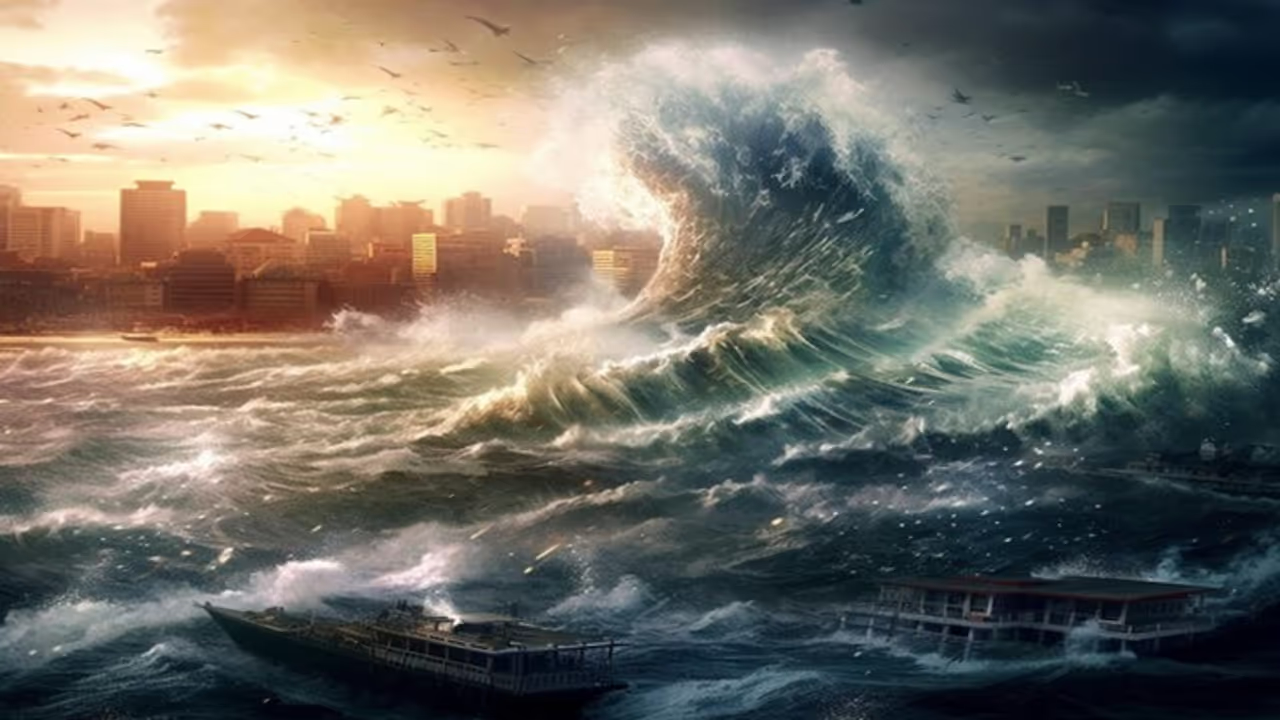World Tsunami Awareness Day, observed annually on November 5, highlights the devastating impact of tsunamis and the critical importance of preparedness and early warning systems. Established by the UN in 2015, this day emphasizes resilience and supports vulnerable communities to reduce disaster risks
World Tsunami Awareness Day is observed each year on November 5, aimed at raising awareness about the devastating impacts of tsunamis and the need for effective safety measures, preparedness, and early warning systems. The event emphasizes the benefits of planning and resilience, which can reduce damage in vulnerable areas.

The word "tsunami" originated in Japan over a millennium ago, derived from the characters tsu (harbor) and nami (wave). This term was adopted into English after a major tsunami struck Japan’s eastern coast over a century ago, underscoring the need for a globally recognized word.
Significance
A tsunami is a powerful series of ocean waves triggered by underwater earthquakes, volcanic eruptions, landslides, or meteorite impacts. Unlike normal ocean waves, tsunamis have very long wavelengths, enabling them to travel vast distances across ocean basins quickly. When tsunamis reach shallow coastal areas, their height can increase dramatically, often leading to severe destruction in coastal communities.
Understanding the nature and impact of tsunamis is essential for saving lives, as their sudden and often unpredictable arrival can cause massive loss of life and property.
Theme
The 2024 theme, "Fighting Inequality for a Resilient Future," highlights the unequal impact of tsunamis and other disasters on vulnerable communities. This year’s theme encourages efforts to build resilience in high-risk areas and to support communities that are most susceptible to natural disasters.
History
In December 2015, the United Nations General Assembly established November 5 as World Tsunami Awareness Day, inviting nations, international organizations, and civil society to collaborate on raising tsunami awareness and sharing innovative risk reduction strategies. Japan, drawing from its history with tsunamis, proposed the observance to share its expertise in early warning systems, public response, and resilient rebuilding. The United Nations Office for Disaster Risk Reduction (UNDRR) leads the organization of the day in cooperation with the broader UN system.
Awareness Campaign
On World Tsunami Awareness Day, the UN and its partners encourage nations and communities to increase awareness about tsunami risks and preparedness. Japan’s experience with past tsunamis has informed its advanced approach to risk management and recovery, which serves as a global model. Through this observance, countries exchange knowledge and develop new strategies to reduce risks associated with tsunamis.
How to Participate in World Tsunami Awareness Day 2024
- Attend Local Preparedness Events: Join disaster preparedness workshops or community drills to understand the essential steps for responding to a tsunami.
- Share Knowledge on Social Media: Use social platforms to circulate factual information on tsunami safety, helping raise awareness in your network.
- Participate in Webinars: Engage in online sessions to learn about the impact of tsunamis and explore effective strategies for minimizing associated risks.
- Join Local Disaster-Preparedness Initiatives: Support local programs aimed at preparing communities, especially those at higher risk of natural disasters.
- Discuss Safety with Family and Friends: Encourage conversations about tsunami preparedness to ensure those around you are informed about safety protocols.
- Organize or Join Tsunami Drills: Participate in evacuation drills to familiarize yourself and your neighbors with safe routes and procedures in the event of a tsunami.
- World Tsunami Awareness Day serves as a critical reminder of the need for preparedness and resilience against one of nature's most destructive forces.
- Through global awareness and cooperation, communities can better protect themselves and minimize the risks associated with tsunamis.
